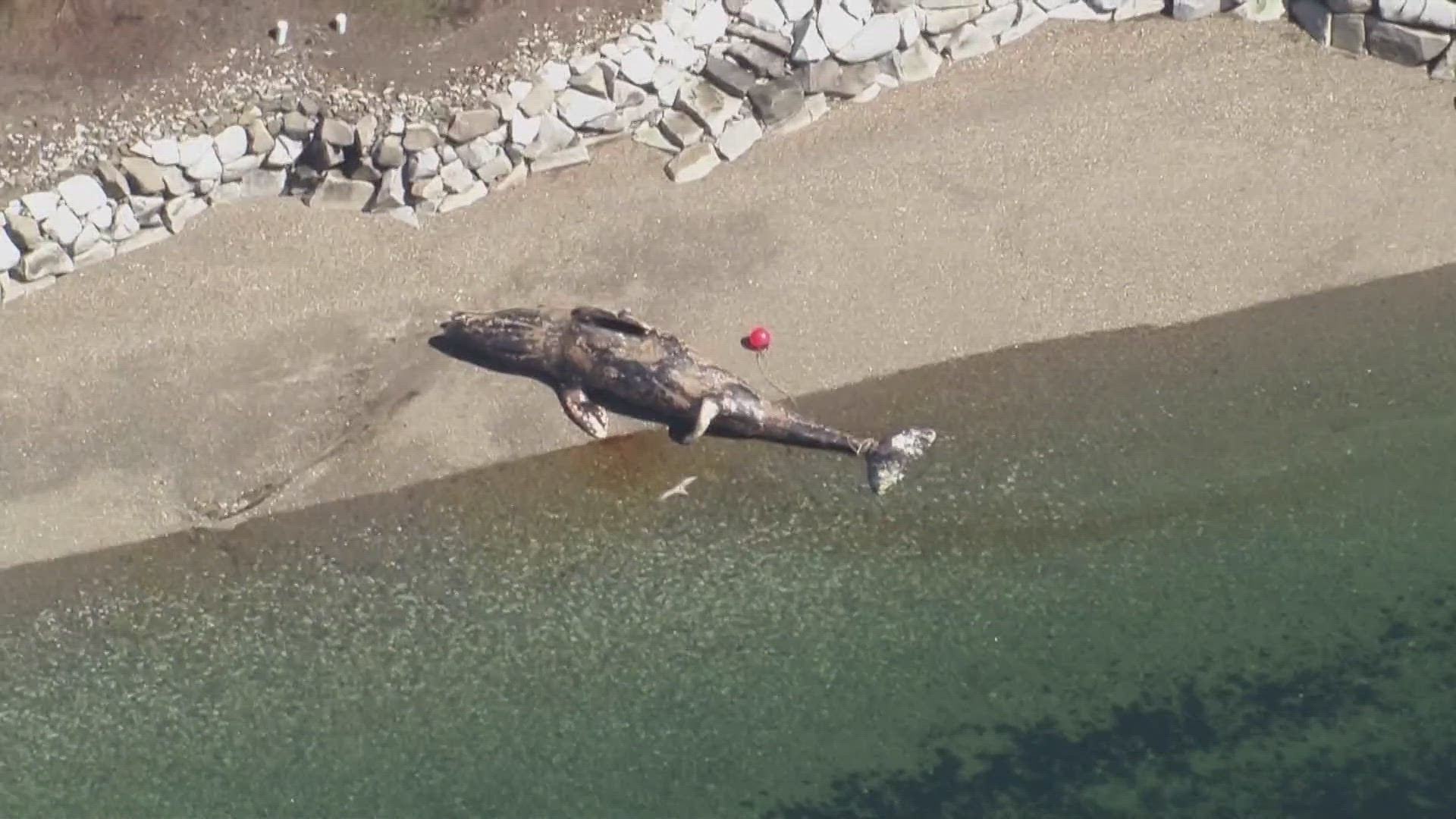FOX ISLAND, Wash. — A gray whale that washed up dead on a Fox Island beach was likely struck by a ship, according to biologists with Cascadia Research and the Washington State Department of Fish and Wildlife (WDFW).
The whale washed up on the beach southwest of Gig Harbor on April 1. Biologists were able to move the whale to a remote location on April 3 to conduct a more thorough examination of the whale's body.
They found the whale was killed by blunt-force trauma which likely resulted from being struck by a vessel. The whale was also in "poor nutritional condition," which potentially made it more vulnerable to being hit by a ship and likely was the reason it was in Puget Sound.
The whale's condition likely meant it was spending a lot of time at the surface of the water and made it less reactive to passing boats, said the founder of Cascadia Research, John Calambokidis.
That particular whale had last been seen alive on March 27 in Puget Sound in poor condition.
Gray whales are the most common species of whale that become stranded on the West Coast. Five whales, including four gray whales and one sperm whale, were stranded on the coasts of Oregon and Washington within a two-week period in late January.
Gray whale deaths have been unusually high since 2019 when an "Unusual Mortality Event" was declared.
Calambokidis said the average number of dead whales researchers expect to wash up on Washington beaches is around six. Likely many more die, but sink into the ocean.
In 2019, 34 dead whales washed up on Washington's shores. In 2020, 13 whales washed up, with nine whale strandings in 2021 and 15 in 2022.
Many of the whales who washed up dead on beaches were also in poor nutritional condition like the whale that washed up in Fox Island.
The full reason behind the elevated whale deaths is still unknown, but researchers say it appears to be related to an increase in the gray whale population prior to 2019 and a decrease in the availability of prey creating "nutritional deficiencies" in some whales.
It's not unusual to see whales who are underfed at this time of year, as gray whales are traveling north from Mexico where many have fasted for long periods of time.
Although there are still more gray whales than usual washing up on Washington's shores, there's a population of gray whales who return to the Puget Sound every year called the "Sounders" that are still doing "really well," Calambokidis said.
"Some of those individuals we've seen almost every year since the early 1990s," Calambokidis said. "And they really represent, you know, a nice story of how the Puget Sound ecosystem is helping those whales survive and do well."

